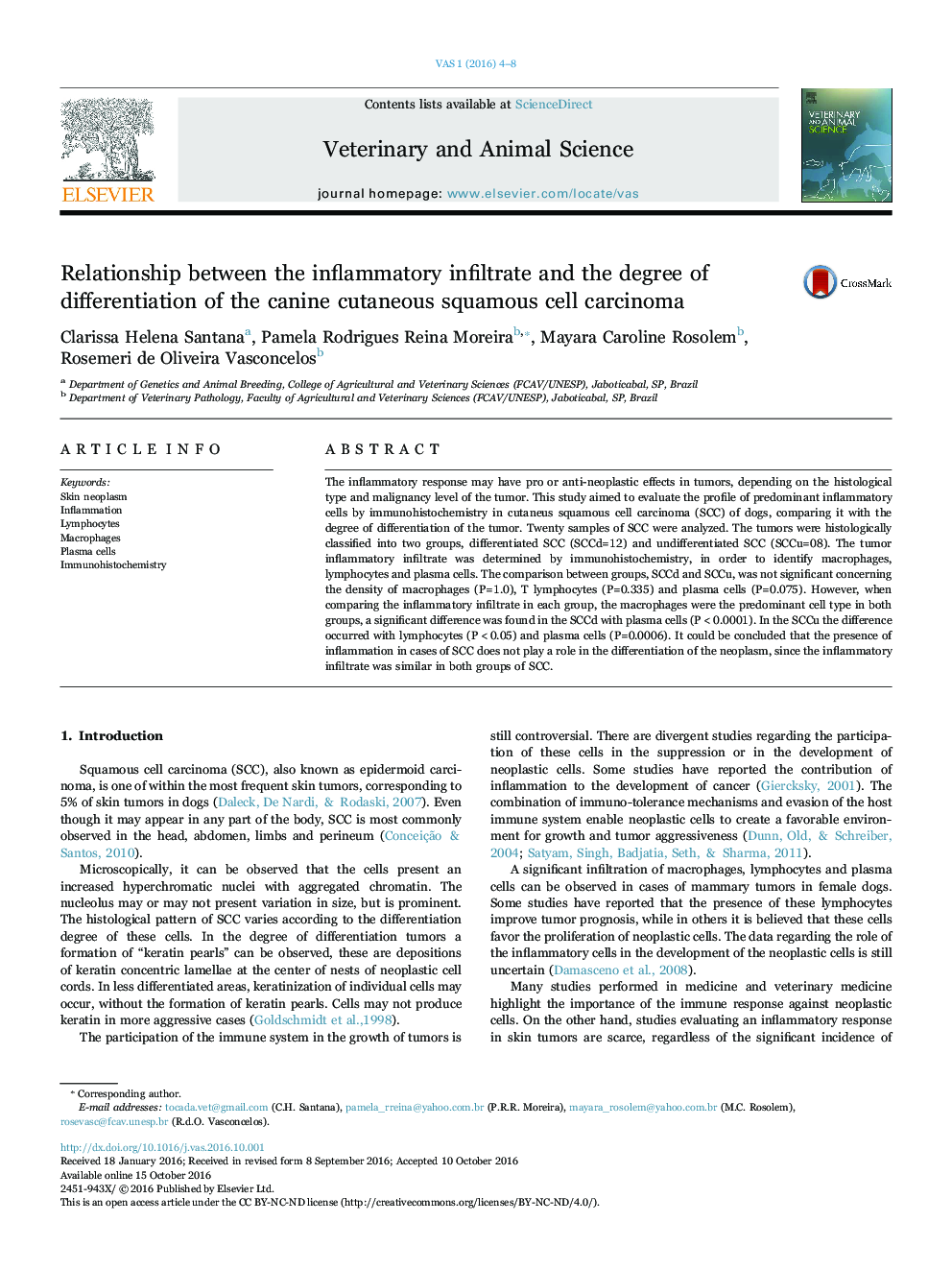| کد مقاله | کد نشریه | سال انتشار | مقاله انگلیسی | نسخه تمام متن |
|---|---|---|---|---|
| 5537543 | 1551868 | 2016 | 5 صفحه PDF | دانلود رایگان |
عنوان انگلیسی مقاله ISI
Relationship between the inflammatory infiltrate and the degree of differentiation of the canine cutaneous squamous cell carcinoma
ترجمه فارسی عنوان
رابطه بین نفوذ التهابی و درجه تمایز کارسینوم سلول سنگفرشی جلدی
دانلود مقاله + سفارش ترجمه
دانلود مقاله ISI انگلیسی
رایگان برای ایرانیان
کلمات کلیدی
نئوپلاسم پوست، التهاب لنفوسیت ها، ماکروفاژ، سلول های پلاسما، ایمونوهیستوشیمی،
موضوعات مرتبط
علوم زیستی و بیوفناوری
علوم کشاورزی و بیولوژیک
علوم دامی و جانورشناسی
چکیده انگلیسی
The inflammatory response may have pro or anti-neoplastic effects in tumors, depending on the histological type and malignancy level of the tumor. This study aimed to evaluate the profile of predominant inflammatory cells by immunohistochemistry in cutaneus squamous cell carcinoma (SCC) of dogs, comparing it with the degree of differentiation of the tumor. Twenty samples of SCC were analyzed. The tumors were histologically classified into two groups, differentiated SCC (SCCd=12) and undifferentiated SCC (SCCu=08). The tumor inflammatory infiltrate was determined by immunohistochemistry, in order to identify macrophages, lymphocytes and plasma cells. The comparison between groups, SCCd and SCCu, was not significant concerning the density of macrophages (P=1.0), T lymphocytes (P=0.335) and plasma cells (P=0.075). However, when comparing the inflammatory infiltrate in each group, the macrophages were the predominant cell type in both groups, a significant difference was found in the SCCd with plasma cells (P<0.0001). In the SCCu the difference occurred with lymphocytes (P<0.05) and plasma cells (P=0.0006). It could be concluded that the presence of inflammation in cases of SCC does not play a role in the differentiation of the neoplasm, since the inflammatory infiltrate was similar in both groups of SCC.
ناشر
Database: Elsevier - ScienceDirect (ساینس دایرکت)
Journal: Veterinary and Animal Science - Volumes 1â2, December 2016, Pages 4-8
Journal: Veterinary and Animal Science - Volumes 1â2, December 2016, Pages 4-8
نویسندگان
Clarissa Helena Santana, Pamela Rodrigues Reina Moreira, Mayara Caroline Rosolem, Rosemeri de Oliveira Vasconcelos,
